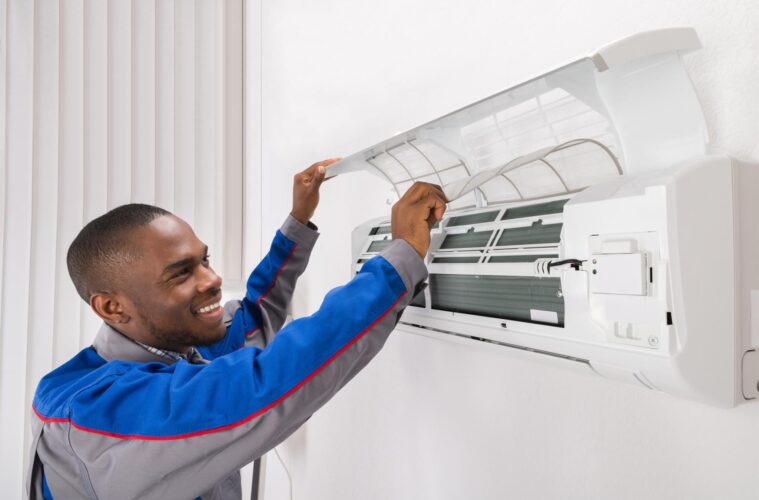Dubai’s climate can be sweltering hot, especially in the summer when temperatures can reach the high 40s (sometimes even 50s), and humidity levels can shoot up to 90%. This makes having a well-functioning air conditioning (AC) system a necessity for all households in the city.
AC units are definitely well used in the city. A recent survey conducted in the UAE, studying the AC usage habits of over 1000 respondents, found that around 62% of UAE residents leave their house ACs running while at work to return to a cool home. Additionally, almost half of them mentioned leaving their home ACs on while they’re off on summer vacation.
Such high usage over an extended period can take a toll on an AC’s performance, causing it to eventually malfunction or break down. Before your unit reaches that stage, you need to watch out for a few tell-tale signs that indicate that an AC replacement or a repair is in order.
7 Signs That Your AC Needs to Be Repaired or Replaced
If you spot any of the following signs, it’s time to call in an AC services company to assess the state of your unit and recommend the proper next steps.
1. Blowing out warm air
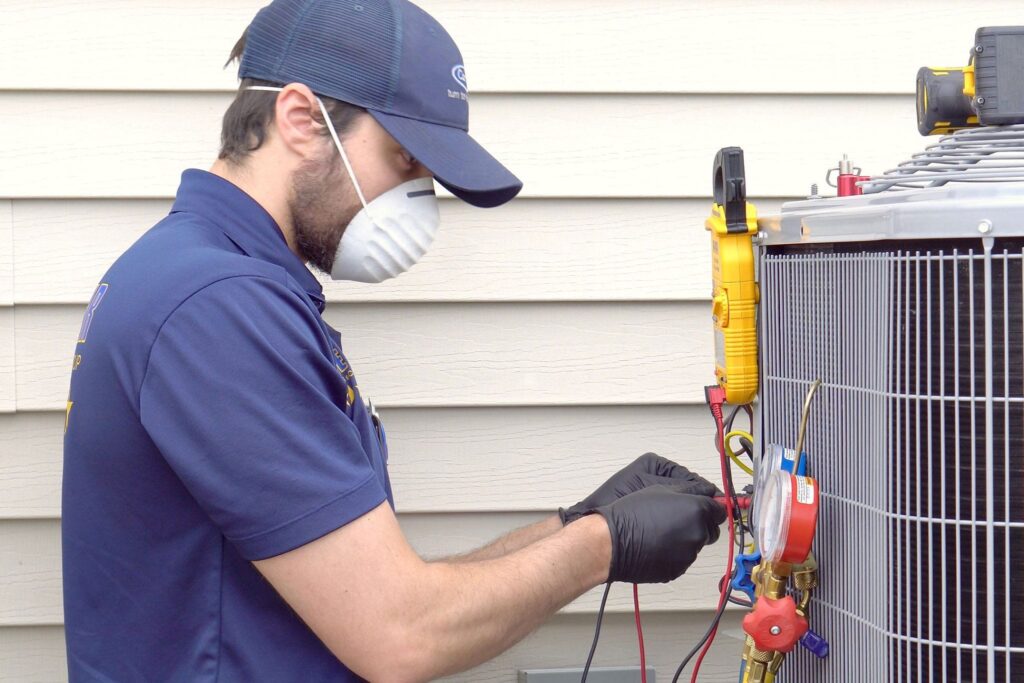
source: pinterest.com
If this doesn’t defeat the purpose of having an AC, what does? An AC’s primary job is to keep your home cool, so if it’s blowing out warm air instead, it means that something is wrong.
Most of the time, this happens because your unit’s refrigerant levels are low, possibly due to a leak. If that is true, your AC will keep running and releasing warm air in an attempt to reach the temperature you set on your thermostat.
Another reason why this might be is because your AC evaporator coils are covered in debris or dirt. Being an essential part of ACs’ functionality, it’s important to keep them clean for the unit to work properly. So, if you haven’t got around to scheduling your annual AC cleaning in Dubai, it’s time to get on it.
2. Unusual noises
Loud grinding, scraping, or screeching noises coming from your AC while it’s running are signs of trouble. These noises suggest either loose belts or rattling pipes within the unit. However, in some instances, they could point to motor failure.
3. Unpleasant odours
Air conditioners aren’t supposed to emit any odours, let alone bad ones. So, here are a few smells that you need to keep an eye out (or rather, a nose out) for and what they could mean:
A musty smell
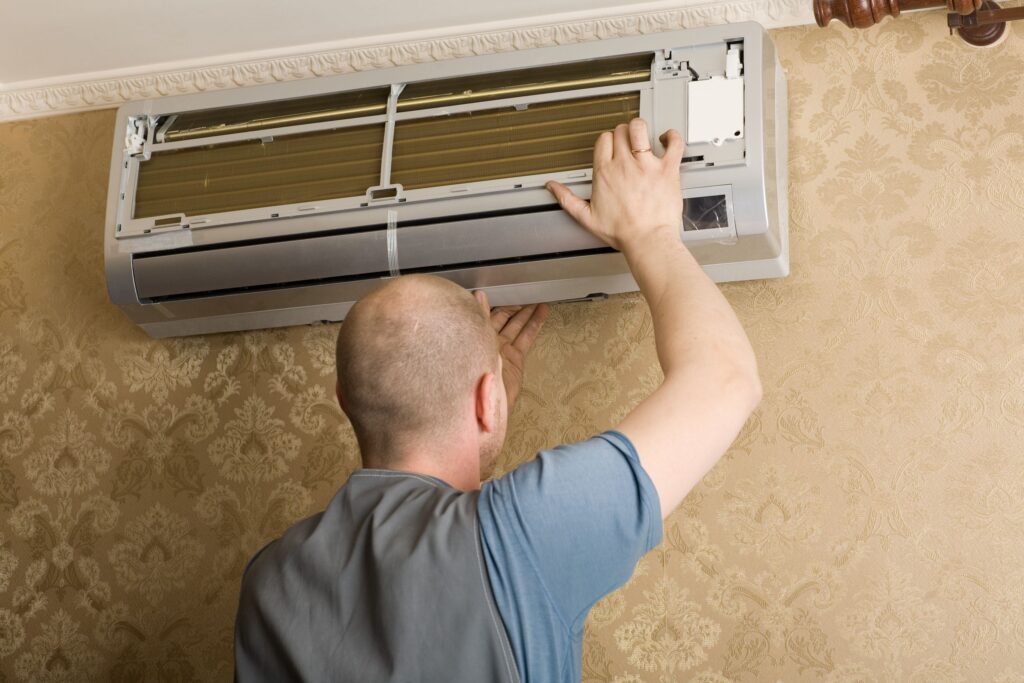
source: pinterest.com
A strong, musty smell is often a sign of bacterial or fungal growth in the AC’s ductwork or filters. This typically happens because the drain pan that collects water from condensation during the cooling process is clogged or full. Left unattended, this can lead to the emergence of mould. Mould, if inhaled consistently, can trigger allergies or cause respiratory problems — definitely something you’d want to avoid for your and your family’s health.
A burning smell
ACs are made up of several electrical components such as power wires, circuit boards, compressors, fans and more. So, if you smell something burning, it could be that one or many of these parts are actually burning. If this happens, immediately turn your AC off and don’t attempt to turn it back on until a professional inspects and either repairs it or replaces it if necessary.
A rotten egg smell
Another smell that spells trouble is the scent of rotten eggs. Sometimes, birds, rodents or insects can find their way into your AC unit, get trapped and, unfortunately, die there. These are often the culprits behind that unpleasant odour.
4. Weak airflow
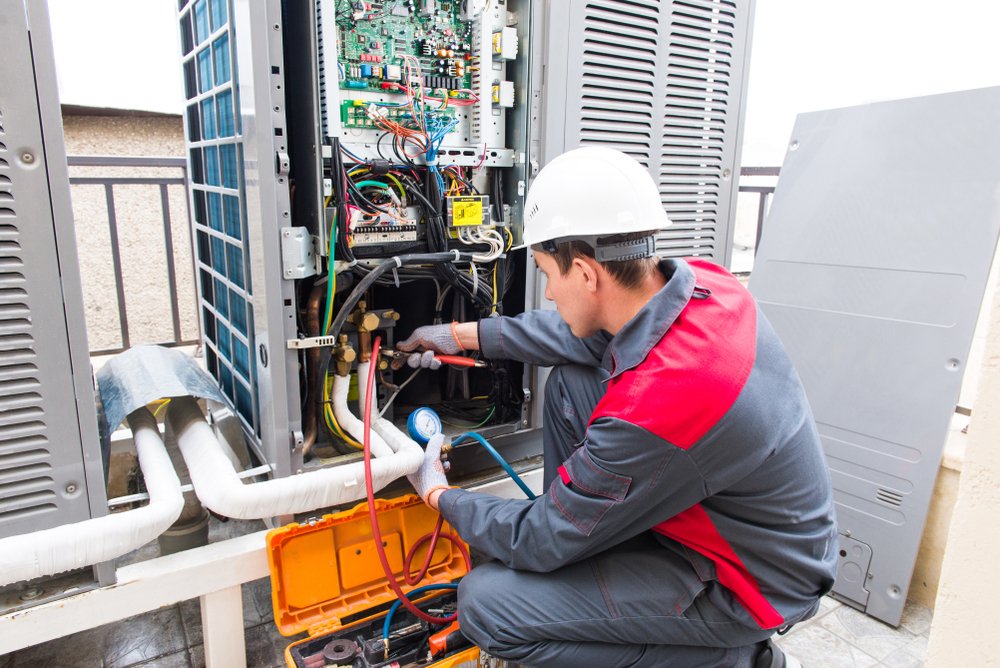
source: pinterest.com
Sometimes, your AC might be working just fine, but the airflow is so weak that it feels like you’re hardly getting any cold air or that one part of your home is cooler than another.
This could be because of a dirty filter that’s restricting air circulation or clogged ductwork. In more severe cases, it might mean that your unit’s compressor is failing and needs to be replaced. Because it’s often hard to pinpoint the exact cause, an expert would be better able to tell you the reason and fix it.
5. Thermostat malfunction
Your AC’s thermostat is its brain. It turns the compressor and fan on and off, senses the temperature inside the house and uses this data to tell the AC system when to work and stop.
If your AC runs for short periods before turning itself off (also known as short cycling), works non-stop, doesn’t turn on at all, or its temperature reading mismatches the room’s temperature, it could mean that your thermostat is malfunctioning. This might be due to faulty wiring, poor calibration or just old age.
6. High humidity levels
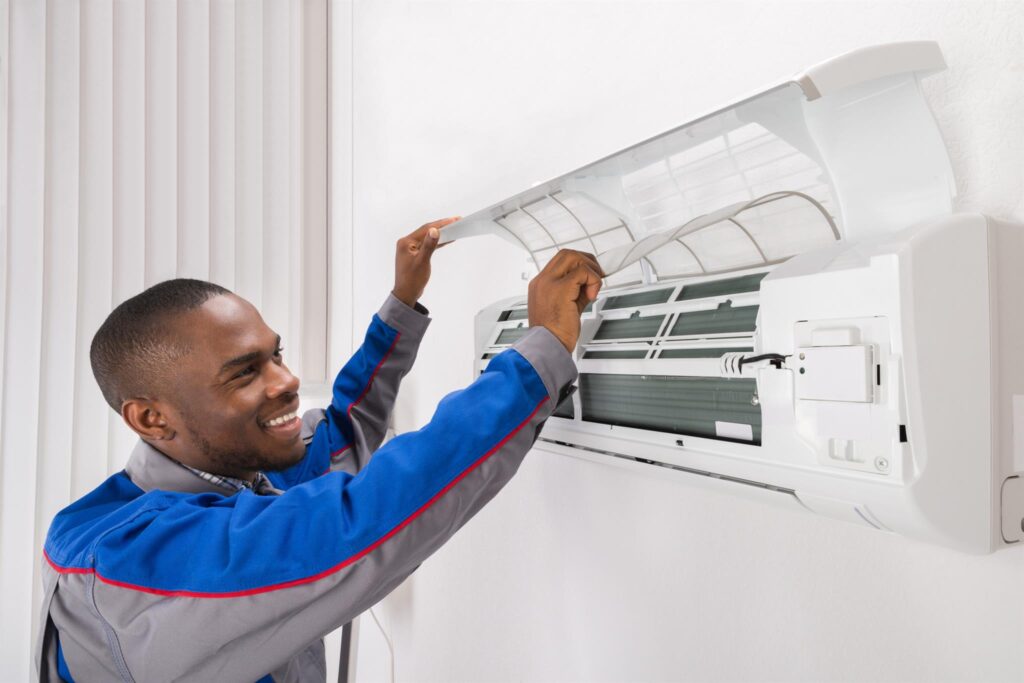
source: pinterest.com
In addition to lowering temperatures, ACs also reduce humidity levels in your home. A small amount of moisture in the air is usually okay, but if you find it on the higher side, you should schedule a maintenance check.
As mentioned earlier, prolonged exposure to excessive humidity can lead to health problems. It could also affect your home’s structural integrity, causing wallpaper to peel, paint to chip and wood furniture or flooring to warp.
7. Freon or water leaks
If your unit has freon leaks, being unable to lower your home’s temperature is the least of your worries. This is an emergency. Freon is a mostly odourless, tasteless gas used in most cooling appliances like refrigerators and ACs.
If inhaled deeply and consistently, freon can cut off the oxygen supply to the lungs and cells. Should you suspect a Freon leak (which you can tell by the presence of frozen evaporator coils, warm air coming out of vents, rising electric bills or unusual hissing sounds), it’s best to shut the unit off and call in a professional immediately.
Water leaks are more common. As your AC cools the air, it often creates condensation that is either disposed of by a drain tube or collected in a pan (mentioned earlier) and then drained. If this drainage system gets obstructed, that water has nowhere to go but drip or leak through the ceiling or walls.
Schedule an AC Check-Up
Don’t wait for your AC to completely break down before calling in an expert. Instead, schedule regular maintenance check-ups at least once a year. Watch out for these seven signs, along with anything else you feel is out of the ordinary, and you’ll save yourself from costly repairs or replacements down the line.

